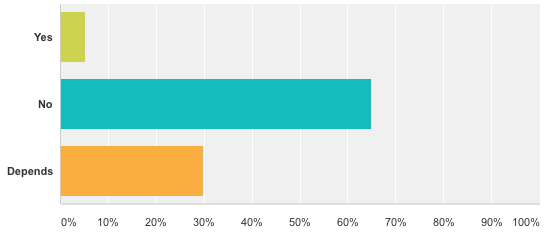
08 Dec The Mini Men/ a little history in entertainment/ employability and disability

Steve Redford has been the proud owner of The Mini Men since 2013, an entertainment company with a twist, all of the entertainers are no taller than 5ft. Steve believes that life is all about making the best of what you have got, follow him and Kevin O’Leary around Sudbury as they become Elves for the Christmas season. Writes Jordan Odell.
Entertainment stems as far back as 753BC when the Romans would put on their barbaric gladiator battles, and has been a steady part of history all the way through to today, where you can be entertained through reality shows and YouTubers, in this world, what really can set you apart from the rest?
Steve Redford, who owns his own events agency, says it is all about using what you have, and in the case of the Mini Men, what sets them apart is that the majority of the entertainers stand taller than 4ft 9ins. Society has always been fascinated by the rare and the wonderful, and people of a short stature have been entertaining since the days of P.T Barnum’s ‘Human Zoo’ in 1838 with General Tom Thumb. Throughout the past two centuries or so, many people have found their fame and made a living by using their individuality, here is a look at some of those extraordinary individuals.
General Tom Thumb (1838 – 1883) and P.T Barnum’s ‘Human Zoo’
Charles Stratton, otherwise known as General Tom Thumb, was only 5 years old when he was scouted by the legendary circus pioneer P.T Barnum in 1844. Tom Thumb only reached the height of 2 foot and weighed 15 pounds, making him a fascinating individual in Victorian society. However it was not just Tom Thumb’s size that impressed the audience, he would also dance, sing, and impersonate important figures like Napoleon. By 1850 he was an international star, and his tour of the world with P.T Barnum started in 1869 until 1872. In 1863 Tom married his wife, Lavinia Warren, who was a fellow small person entertainer.
Edward Carl Gaedal
Edward Carl Gaedal, born in Chicago on June 8, 1925. Eddie stood at only 3ft 7in at his tallest and weighed only 65 pounds, but had a number of jobs including working as a mascot for Mercury Records, being a riveter in world war II and by 1951 he became a bartender at “The Midget Club” that only employed little people, before he was scouted out by Bill Veeck, the owner of the St. Louis Browns in August 1951.
The St. Louis Browns were infamous for being the worst baseball players at the time and the owner, Bill Veeck, was known to think up colourful publicity stunts to draw in crowds of people to watch the games. In 1951 he thought up the idea to have a little person stand up to bat. Veeck hired Edward Carl Gaedal as his short baseball player and in mid-August of 1951 Eddie’s performance brought a standing ovation of 18,369 to the stands.
Eddie was paid $100 for his brief but unforgettable at-bat, but he made $17,000 on TV appearances from it. He could have made more money but hated to travel and refused to leave Chicago.
The Kingdom of the Little People
Kunming Spring City in the province of Yunnan, southwest China, is where you will find a place like none other, the Kingdom of the Little People.
The theme park was founded in 2009 by wealthy real estate agent Chen Mingjing where roughly 100 people live and perform for the public.
What makes the Kingdom of the Little People so different is that there is one requirement on being employed to work there. You must stand at 4ft 3in or shorter.
Those who work at live at the theme park suffer from one of two forms of dwarfism, these being proportionate dwarfism, which results from hormonal deficiency, and disproportionate dwarfism that causes a disproportionately short stature.
There has been a large amount of disagreement on the theme park from charity’s such as Handicap international, Little people of America, suggesting that the Kingdom of the Little People is the equivalent to a modern day Human Zoo (Freak show). Warwick Davis also spoke up about the Kingdom on Karl Pilkington’s An Idiot Abroad commenting that “What’s happening in China is segregation, it’s exploitation”. However others believe that the park gives people employment and a sense of community when they are otherwise unable to get it

De Montfort Hall and Snow White
This year, De Montfort Hall, Leicester, has decided against hiring small actors in their production of ‘Snow White’ under the grounds that they believe the term is ‘dwarf’ is ‘offensive’.
A spokeswoman for the De Montfort Hall told Leicester’s Mercury newspaper that “[dwarf] is generally not a word that people would feel comfortable with” and that the roles would instead be played by children.
Warwick Davies, Hollywood actor that is best known by his part in the Harry Potter and Star Wars series spoke out about the decision and argued that “the profit margins for pantos are not very big and it’s obviously much cheaper to involve school children than it is to pay lots of professional short actors”. Warwick Davies found his fame as a short actor and told Leicester’s Mercury that he thought the decision to use children instead was “Patronising” that they were “offended on our behalf”. He also added “I’m sure there are those out these who don’t like the term, but as a short actor I want to be given the choice about whether I appear in pants or not. I don’t want someone making that decision for me”.
I personally spoke to Katherine Wilson, the communications manager at De Montfort Hall in regards to the issue of using children instead of professional actors who stated that the reasoning behind this choice is that “The programme at De Montfort Hall is firmly driven by star names and celebrity, and it’s no different for pantomime, so the storyline focuses on the characters of Snow White and Wicked Queen – played by our star performer, Sherrie Hewson. The script still features the seven dwarf characters, but our approach to the story is much more in line with the original Grimm Brothers tale than the Disney version, so they are less involved in the storyline in this show. As a result they’re being played by the dance team in full costume rather than a team of adult actors, but audiences will absolutely get the full traditional story they’re expecting to see – dwarfs and all. The dance teams that will play these characters as well as providing the dance ensemble, were selected by open audition earlier in the year and panto is the ideal vehicle for them to be involved in a professional theatre production – often for the first time”.

Do you think it is offensive to hire people with dwarfism as actors?
I asked a poll of 100 people whether they thought hiring people with dwarfism as actors was offensive. Here are their answers.
Depends on the context in which they are hired. They are volunteering themselves so as long as they are treated respectfully they are well aware of what they are doing. But little people very rarely play roles that could also be played by regular sized people, only roles that are made for little people.
It’s equally offensive telling little people that they cannot be hired because they are little. Actors are hired because of the way they look. People, as long as we have no reason to believe they are not lacking in mental capacity, should be free to make choices for themselves.
If the person is an entertainer by profession then no, also depends on if they personally find it offensive.
As of 2012 in the UK there are 11.6 million people living with disabilities, of these 5.7 million are of working-age. In 2014 according to the Labour Force Survey, disabled people are now more likely than ever to be employed than in 2002, however only 46.3% of working-age disabled people are in employment compared to 76.4% of working-age non-disabled people. This is not because they don’t want to work, it is because they are unable to. This audio piece looks into how people with disabilities find work, and how it affects them socially not being able to find employment, writes Jordan Odell.
As of 2012 in the UK there are 11.6 million people living with disabilities, of these 5.7 million are of working-age. In 2014 according to the Labour Force Survey, disabled people are now more likely than ever to be employed than in 2002, however only 46.3% of working-age disabled people are in employment compared to 76.4% of working-age non-disabled people. This is not because they don’t want to work, it is because they are unable to. This audio piece looks into how people with disabilities find work, and how it affects them socially not being able to find employment, writes Jordan Odell













